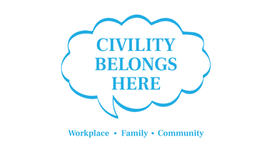- Bill Durkin
- Apr 29, 2016
- 3 min read

Regardless of whether you’re involved with business battles or family feuds, your life as a leader is filled with conflict. It’s not a question of if but rather when you’ll have to deal with your next disagreement. The only uncertainty regarding conflicts is whether your relationships and results tend to get stronger or weaker after you collide with a co-worker, client, family member, or friend.
How do you resolve the daily conflicts in your life now?
Many leaders have the mistaken belief that they can use their facts to resolve conflicts fast and get the other person to agree to their point of view. This approach is guaranteed to create poor results because when people are emotional, facts are irrelevant. No matter how much evidence you have to support your opinion, it’s nearly impossible for you to prove to another person that your idea is better than theirs. Even if your case could be won in a court of law, the least creative thing you can do in a conflict is take either person’s initial idea because those opinions already exist. It’s much more effective to take the best part of each person’s thinking and develop a higher quality solution that neither person thought of before the conflict started.
When interacting with your direct reports, you may think it’s okay to use your “power card” when you’re in a hurry and force someone to do what you want done because you’re the boss (or parent). This approach may seem like an efficient solution, and in some cases it is in the short term, but it always fails in the long run because your employees (and children) have the most powerful card in the deck, and it’s called the “apathy card.” You can command compliance with your “power card” but you can’t command commitment or engagement. The “apathy card” trumps the “power card” every time.
Resolve Conflict The Positive Way
Coming up with a successful solution that both parties agree to during an emotional conflict is like putting a puzzle together. At first, it doesn’t look like anything you do is going to work; but with a positive attitude, patience and a plan, everything starts to come together.
The next time you have a conflict with someone, instead of trying to convince the other person you’re right and they’re wrong, use this 5-Step Positive Process to create a win/win agreement.
First, focus on the person–not the problem. Your goal should be to repair the relationship and try to really understand their view of the world. You may have to let the person vent for a few minutes before you truly understand their issues. Remember, empathy does not mean you agree. It just demonstrates you care enough about the other person to understand their story.
Second, ask positive questions to learn more about why the other person feels the way they do and really listen to their answers. During this part of the conflict resolution, it is essential that you refrain from judging the person or their point of view. Just ask questions about their facts and feelings, listen with your eyes and ears, and be willing to learn something new that will help you create a win/win agreement.
The third step is when you summarize your understanding of the other person’s position and include your thoughts on what you both have in common. You don’t want to suggest a resolution until the other party has confidence that you know how they feel and they agree to the common ground you discovered.
The fourth step is to begin working on a mutually-beneficial agreement. You want to explore the advantages and disadvantages of several ideas before selecting the one that both of you agree is superior to either of your original suggestions.
Finally, step five is asking for a commitment to move forward with the idea. Just talking about problems or complaining doesn’t benefit anyone. Conflict is a catalyst for creating change only when positive action is taken.
While the approach I’m suggesting may seem like it takes more time than you have available, in reality this positive process will save time and dramatically reduce the unhealthy stress associated with dealing with disagreements and difficult people.
The quality of our relationships and results will not get better by eliminating conflict from our lives…improving how we handle them will.
Let’s Get Better. Together! Bill Durkin

































Comments